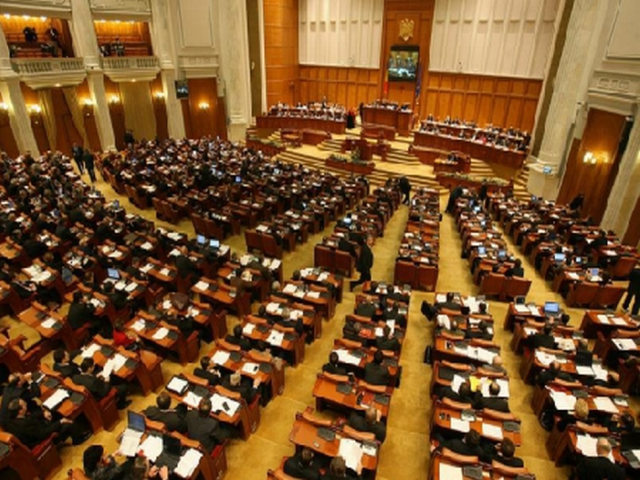Salary rise for public sector employees
The Romanian Chamber of Deputies passes bill to raise public sector salaries by 10% as of December 1.

Valentin Țigău, 12.11.2015, 13:47
With 319 yes votes, 7 abstentions and only one no vote, the Romanian Chamber of Deputies passed on Wednesday a bill to raise public sector salaries by 10% as of December 1st. The medical staff has benefited from a 25% pay rise as of October 1st, following an increase of salaries in the state education sector. Romanian MPs say all public sector employees should benefit from higher salaries, not just those working in the education and health systems. Given that the Chamber of Deputies is Parliaments decision-making body, the bill will go straight to President Klaus Iohannis to be signed into law.
The Social Democrat MP Adrian Solomon, who initiated the bill, explains why it had to be passed through an emergency procedure:
“Unless the law is enforced by December 1st, so that all state employee salaries to grow from that date, it will be impossible to raise salaries after this date, because 2016 is an election year and the Fiscal Responsibility Law makes any salary rise unlawful in an election year.”
Although they initially opposed this measure, which was not backed by the Finance Ministry, the Liberals eventually supported it. They have asked, however, for an impact study to see if the state budget can cover the additional expenses. The leader of the Liberal MPs, Eugen Nicolaescu:
“We do not know if Romanias budget next year will be able to cover this pay rise. We must act responsibly towards our citizens and make sure that we can deliver on what we promise.”
The Liberals believe the Social Democrats initiative is in fact an attempt to score some points with the voters ahead of the 2016 parliamentary elections. Romania is in a period of transition following the resignation of the Victor Ponta cabinet and before the formation of a technocratic government by the new prime minister designate Dacian Ciolos, a former European Commissioner.
Romanias existing fiscal plans are unlikely to undergo significant changes following the nomination of a new prime minister to succeed Victor Ponta, Fitch Ratings says. The main sovereign rating sensitivity remains the possibility that fiscal loosening jeopardises the stability of public finances.Romanias ratings are supported by a healthy economic outlook with real GDP to rise 3.3% this year, low inflation, comfortable foreign reserves, and a stable banking sector.
(Translated by: E. Enache; edited by: C. Mateescu)






























